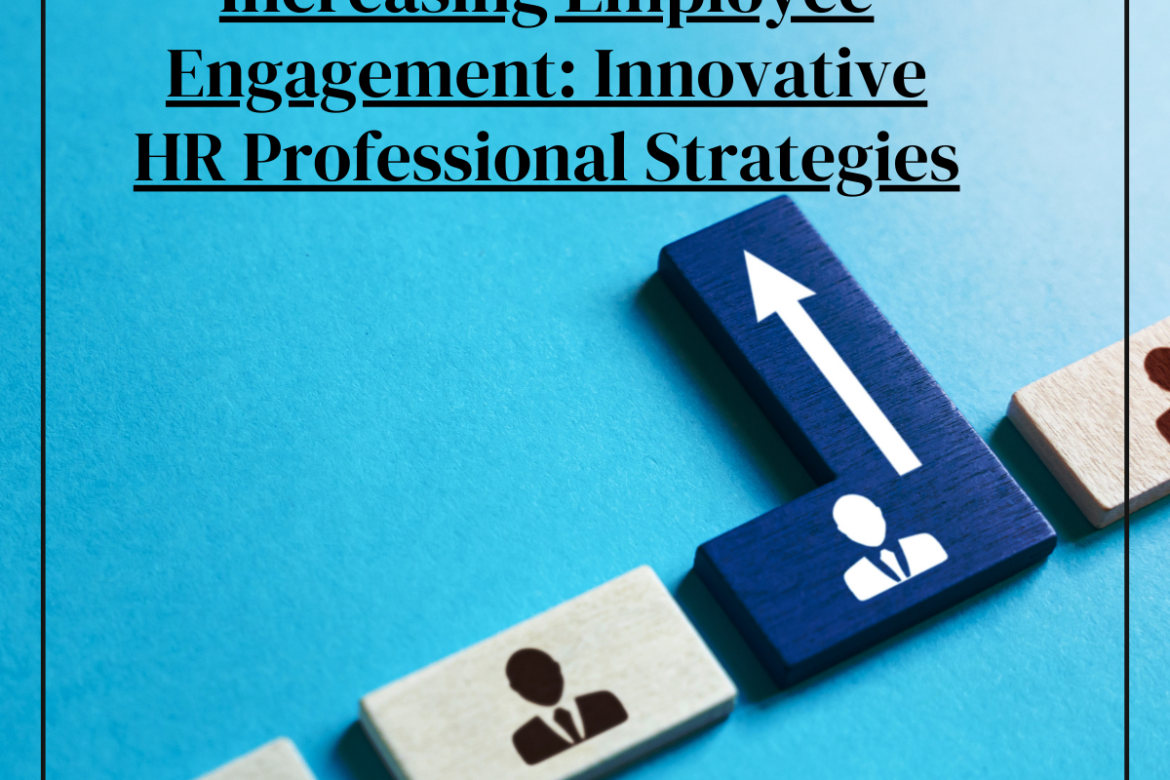Increasing employee engagement is crucial for organizations to boost productivity, retain talented employees, and foster a positive work environment. Innovative HR professionals can employ several strategies to enhance employee engagement. Here are some examples:
- Create a Strong Organizational Culture: HR professionals can play a key role in shaping and promoting a positive company culture. This includes defining core values, establishing a clear mission statement, and ensuring alignment between the organization’s values and employee behaviors. A strong culture fosters a sense of belonging and purpose, increasing employee engagement.
- Implement Flexible Work Arrangements: Offering flexible work options, such as remote work, flextime, compressed workweeks, or job-sharing, can significantly impact employee engagement. It allows employees to have a better work-life balance, increases autonomy, and boosts job satisfaction.
- Encourage Continuous Learning and Development: HR professionals should promote a learning culture within the organization. This can be achieved through various initiatives like providing opportunities for professional development, offering training programs, mentoring, and coaching. When employees feel supported in their growth, they are more engaged and motivated.
- Regularly Seek Employee Feedback: HR professionals should establish channels for regular employee feedback, such as surveys, suggestion boxes, or town hall meetings. Actively listen to employees’ opinions, concerns, and ideas. This demonstrates that their voices are valued, leading to increased engagement and a sense of ownership.
- Recognition and Rewards: Implementing effective recognition and reward programs is crucial for fostering employee engagement. HR professionals can design programs that acknowledge and appreciate employees’ efforts and achievements. This can include monetary rewards, non-monetary incentives like extra time off, public recognition, or career development opportunities.
- Encourage Collaboration and Teamwork: Facilitating collaboration and teamwork boosts engagement by creating a sense of camaraderie and shared purpose. HR professionals can promote cross-functional projects, team-building activities, and open communication channels to enhance collaboration among employees.
- Enhance Employee Well-being: Employee well-being is closely linked to engagement. HR professionals can introduce wellness programs, mental health initiatives, and work-life balance policies. Encouraging healthy habits, providing resources for stress management, and promoting a supportive work environment can significantly improve employee engagement.
- Foster Transparent Communication: Open and transparent communication is crucial for building trust and engagement. HR professionals should ensure that communication flows effectively across all levels of the organization. They can facilitate regular updates, town hall meetings, and use various communication tools to keep employees informed and involved in the decision-making process.
- Promote Social Connections: Encouraging social connections within the workplace strengthens employee engagement. HR professionals can organize team-building activities, social events, or establish employee resource groups. These initiatives foster a sense of belonging, camaraderie, and promote positive relationships among employees.
- Embrace Technology: Leveraging technology can streamline HR processes and enhance engagement. HR professionals can implement digital platforms for employee recognition, collaboration tools, learning management systems, and feedback platforms. Embracing technology simplifies tasks, improves communication, and enables employees to stay connected and engaged.
By implementing these innovative strategies, HR professionals can effectively increase employee engagement, leading to higher productivity, improved job satisfaction, and a more vibrant and motivated workforce.

